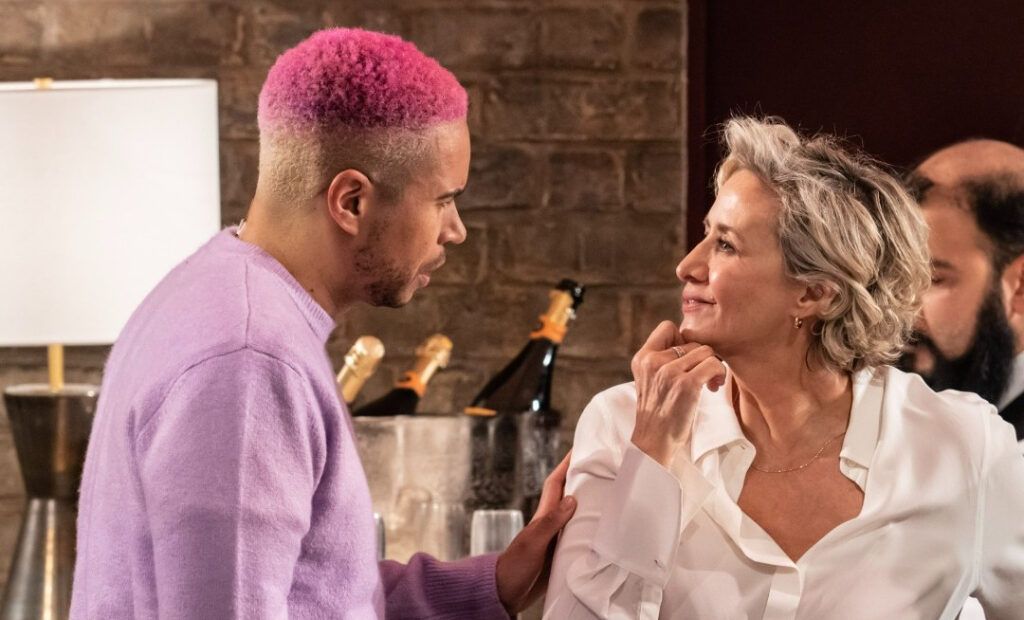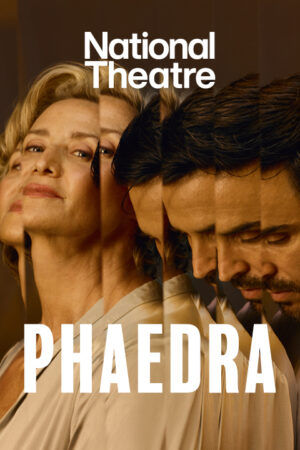Phaedra at the National Theatre

Simon Stone’s new reimagining of the famous Greek tragedy Phaedra is intense, fierce and unforgettable. The production updates the mythical plays of Euripides, Seneca and Racine into a modern context: the anti-heroine Phaedra becomes Helen, a post-menopausal, stylish and sarky politician, whose past, present and future are set into turmoil when a man from her past visits her family home for dinner.
Stone succeeds in making the difficult and uncomfortable myth of Phaedra feel real, although ever shocking, in its contemporary setting, and Janet McTeer is undoubtedly incredible in the role. Her Phaedra is intricately complex from the very first moment: she startles the audience into gasping aloud, yet also earns their sympathies throughout her tragic story.
Sofiane is the son of Helen’s long-lost lover, Ashraf, who died in a car crash years before, haunting her for eternity. Although the relationship between Helen and Sofiane is altered slightly from the ancient original, where Phaedra falls in love with her stepson, the theme of female desire remains at the heart of Stone’s version. Helen’s lust and loneliness drive the plot throughout as she begins a relationship with her dead lover’s son. Stone has made the conscious choice to explore the desires of an older woman in his production, a topic which is so often ignored, as Helen herself notes during the play. Even her name is reminiscent of the infamously desiring Helen of Troy.
The staging is set entirely within a giant glass box and is a memorable highlight of the performance, a feature which Stone also employed in Yerma at the Young Vic. The box adds to the sense of claustrophobic turmoil throughout the story, in which the characters are trapped amongst each other in dangerous ways. The box rotates in key scenes, further adding to the tension that never leaves the stage. Moments of complete darkness encompass the audience between scenes, punctuated by the play’s haunting music that leaves the audience on edge as they wait for the lights to come back on.
The show makes clever use of subtitles for scenes in Arabic and French, which flow almost perfectly and are only rarely out of time with the spoken sentences. Overlapping dialogue in moments of tension is effective yet can mean some words are lost to the audience. Whilst this is not the play to see if you want something light-hearted, there are also many surprising moments of humour embedded within the tragic narrative.
Overall, Phaedra is technically superb, fiercely clever and a thrilling exploration of dangerous desires and the power they can hold over us.
Eleanor Antoniou
Image: Johan Persson
Phaedra is at the National Theatre from 9th February until 8th April 2023. For further information or to book visit the theatre’s website here.
























Facebook
Twitter
Instagram
YouTube
RSS